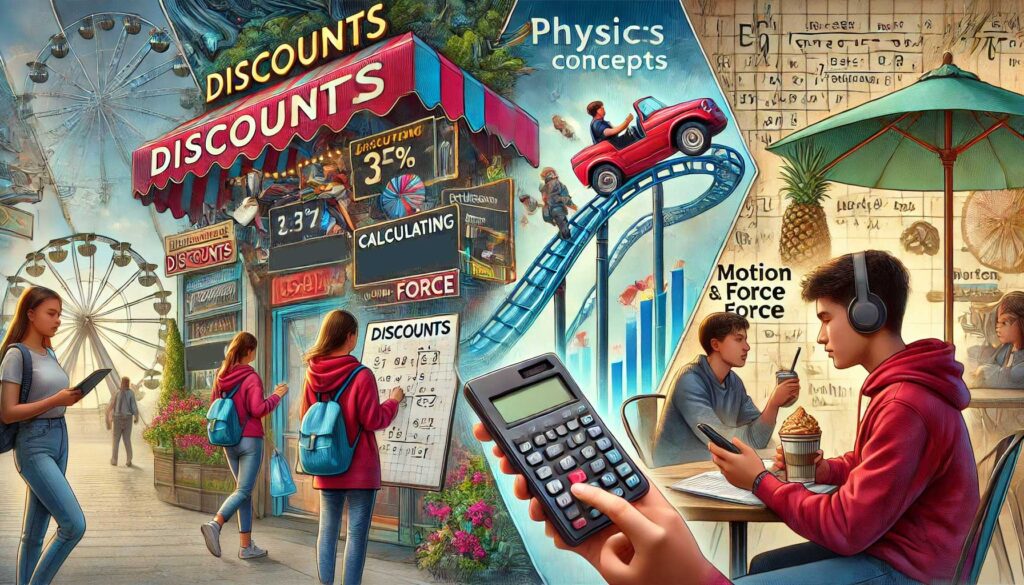
Have you ever crammed for a test, only to forget everything a week later? 😩 Traditional memorisation can feel forced and disconnected, but there’s a better way! Context-based learning uses real-life situations to help concepts stick, making learning more engaging, practical, and long-lasting. 🚀
Why Context-Based Learning Works
Instead of studying in isolation, this method helps your brain connect new knowledge to real-world situations, making recall easier and faster. 🌟
🧠 Strengthens Memory – Applying concepts in real situations cements them in your brain.
📖 Makes Learning Meaningful – Information sticks when you see its practical use.
🎯 Boosts Problem-Solving Skills – You learn how to apply knowledge, not just recite it.
How to Use Context-Based Learning in Real Life
Learning isn’t just about textbooks and exams it’s about understanding the world around you. Context-based learning helps students connect abstract concepts to real-world applications, making studying more meaningful, engaging, and easier to remember.
Here’s how you can experience subjects like science, history, and languages in everyday life! 🚀
🔬 Science & Math’s in Everyday Life
Science and maths aren’t just for the classroom; they’re happening all around us. When you start looking at the world with curiosity, you’ll realise that roller coasters, shopping discounts, and even baking cookies can teach you important concepts.
🎢 Understand Physics by Analysing How a Roller Coaster Works
Next time you’re at an amusement park, take a moment to observe the rides. Roller coasters are a perfect example of Newton’s Laws of Motion in action!
The steep drops demonstrate potential and kinetic energy, while the loops show the power of centripetal force. If you think physics is complicated, imagine how engineers design roller coasters to ensure they’re thrilling but safe!
🛒 Learn Percentages by Calculating Discounts While Shopping
Ever wondered if that “50% off” sale is really a good deal? Instead of guessing, use percentages to calculate how much you’re actually saving. If a T-shirt is originally $40 and there’s a 25% discount, how much will you pay? ($40 × 0.75 = $30). This quick mental math skill is useful for budgeting, financial decisions, and even business negotiations!
📜 History in Real-World Contexts
History isn’t just about remembering dates it’s about understanding how past events shape our world today. Instead of memorising facts, try immersing yourself in historical experiences.
🏛️ Visit Historical Landmarks or Museums to Bring Lessons to Life
Seeing history first-hand makes it so much more memorable! Walking through a castle, an ancient ruin, or a war museum allows you to visualise events as they happened. It’s one thing to read about World War II, but standing in front of an original Spitfire plane or Anne Frank’s house gives a powerful sense of connection to the past.
🎥 Watch Movies or Documentaries That Immerse You in Different Time Periods
A well-made historical movie or documentary can transport you to a different era. Films like Dunkirk (World War II), Hidden Figures (NASA’s early space program), or Les Misérables (French Revolution) offer realistic portrayals of historical events, making them more engaging and easier to remember.
📝 Languages Through Real Interactions
The best way to learn a language is to immerse yourself in it. Instead of just studying from a book, try using the language in real-life scenarios!
🍽️ Practise Vocabulary by Ordering Food in a Different Language at a Restaurant
Next time you’re at a French, Italian, or Japanese restaurant, challenge yourself to order in that language!
Not only does this help you practise pronunciation and vocabulary, but it also gives you real-life confidence in speaking.
🏠 Label Household Items in the Language You’re Learning
Learning new words can feel overwhelming, but small changes help! Stick labels on everyday objects around your house—like la porte (door) in French, el espejo (mirror) in Spanish, or das Fenster (window) in German. Seeing these words regularly in context strengthens your memory naturally.
Why Context-Based Learning Works ✅
Traditional memorisation can feel boring and disconnected from real life. But when students can see how a concept applies in the world around them, learning becomes more engaging, meaningful, and easier to remember. Context-based learning bridges the gap between theory and practice, making knowledge stick longer and spark curiosity. Here’s why it’s so effective:
🔹 Makes Learning More Engaging 🎯📚
Let’s face it—memorising facts from a textbook isn’t always exciting. But when you apply knowledge to real-world situations, suddenly, it feels relevant. Instead of just reading about gravity, imagine bungee jumping and understanding free fall.
💡 Why it works: When students see the impact of what they’re learning, they feel more motivated to engage with the subject.
🔹 Strengthens Memory Retention 🧠🔗
Ever noticed how you can recall personal experiences vividly, but struggle to remember a page of notes That’s because our brains retain information better when it’s connected to an experience.
For example:
✔️ A student who visits a historical site is far more likely to remember important dates and events than one who just reads about them.
💡 Why it works: When you experience concepts in action, they become part of your lived knowledge, rather than something you just memorised for a term.
🔹 Encourages Curiosity & Problem-Solving 🔎💡
Context-based learning doesn’t just teach information it inspires curiosity and helps students develop critical thinking skills. When you start seeing subjects in everyday life, you begin to ask better questions, make connections, and think more deeply.
For example:
✔️ A student learning about supply and demand might start noticing how prices change at the supermarket during seasonal sales.
💡 Why it works
Curiosity is the key to deeper learning. Once students start applying knowledge in real-life situations, they become more independent learners, eager to explore and understand the world beyond the classroom.
Try It Today!
🚀Next time you’re studying, ask yourself: How does this concept show up in real life? Challenge yourself to find one real-world connection per subject—and watch how much easier it becomes to understand and remember!
